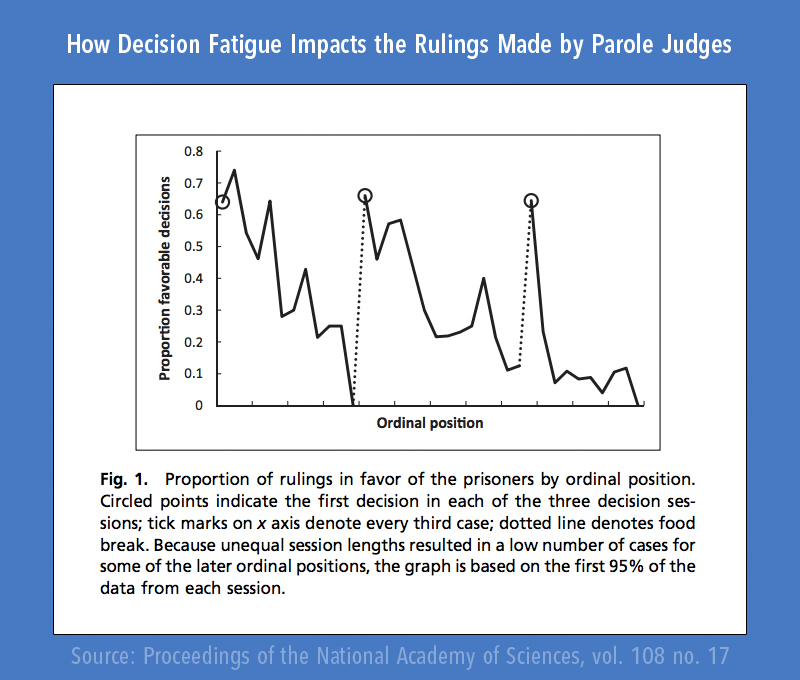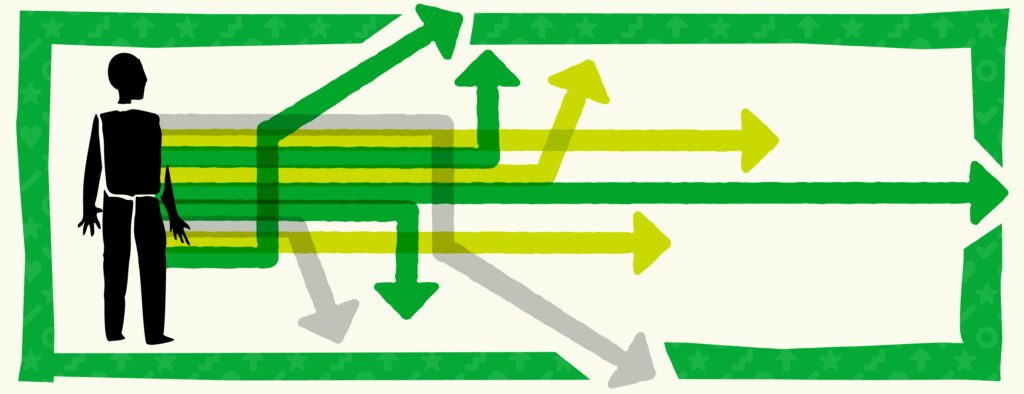Are you feeling overwhelmed by the constant stream of decisions you have to make every day? Do you find yourself unable to focus and make important choices? Look no further! “How to Overcome Decision Fatigue and Boost Productivity” is the ultimate solution you’ve been searching for. Lifehackingtools, a leading website on productivity and life optimization, has curated a game-changing set of strategies to help you overcome decision fatigue and unlock your full potential. Get ready to regain control of your life and skyrocket your productivity.
Identifying the Causes of Decision Fatigue
Understanding the concept of decision fatigue
Decision fatigue refers to the mental exhaustion and decreased ability to make effective decisions that occurs after a long period of decision-making. It is a psychological phenomenon that can have a significant impact on productivity and overall well-being. The concept of decision fatigue stems from the idea that our ability to make decisions is a finite resource that depletes throughout the day.
Recognizing the factors that contribute to decision fatigue
Several factors contribute to decision fatigue. The first is the sheer number of decisions we make on a daily basis. From minor choices like what to wear or what to have for breakfast, to more complex decisions related to work or personal life, the cumulative effect of making numerous decisions can drain our mental energy.
Another factor is the complexity of the decisions we face. When decisions require a great deal of analysis, research, or consideration of multiple options, it can be mentally taxing and contribute to decision fatigue.
Lastly, the fear of making the wrong decision can also lead to decision fatigue. The pressure to make the perfect choice can be overwhelming and cause individuals to second-guess themselves, exhausting their mental resources.
Exploring the effects of decision fatigue on productivity
Decision fatigue can have a significant impact on productivity. As our mental energy depletes throughout the day, our ability to make thoughtful, rational decisions diminishes. This can lead to procrastination, as individuals may avoid making important choices altogether or settle for quick, impulsive decisions.
Furthermore, decision fatigue can negatively affect the quality of our decisions. When we are mentally fatigued, we are more prone to biases, shortcuts, and errors in judgment. This can result in suboptimal outcomes and hinder our progress towards achieving our goals.
To combat decision fatigue and maintain productivity, it is essential to develop effective decision-making strategies.
Creating Effective Decision-Making Strategies
Simplifying your daily routine and limiting choices
One way to mitigate decision fatigue is to simplify your daily routine and limit the number of choices you need to make. Streamlining your morning routine by laying out your clothes the night before or planning your meals for the week can reduce the number of decisions you need to make in the moment, preserving your mental energy for more critical choices.
Prioritizing decisions and setting clear goals
Prioritizing decisions and setting clear goals can help you allocate your mental resources more effectively. By identifying which decisions are most important or time-sensitive, you can focus your energy on addressing those first. Breaking larger decisions into smaller, manageable tasks can also make the decision-making process more manageable and less overwhelming.
Utilizing decision-making frameworks and tools
Decision-making frameworks and tools provide structured approaches that can guide your decision-making process and reduce decision fatigue. These frameworks, such as the Eisenhower Matrix or cost-benefit analysis, can help you weigh options objectively and make more informed decisions. Additionally, utilizing technology tools like decision-making apps or online platforms can streamline the decision-making process and save you time and mental energy.

This image is property of blog.mint.com.
Improving Mental and Physical Well-being
Getting enough sleep and practicing good sleep habits
One of the most effective ways to combat decision fatigue is by ensuring you get enough sleep and practicing good sleep habits. Adequate sleep rejuvenates the mind and replenishes mental energy, allowing you to make clearer, more well-thought-out decisions. Establishing a consistent sleep schedule, creating a relaxing bedtime routine, and optimizing your sleep environment can all contribute to better quality sleep.
Incorporating relaxation techniques into your daily routine
Incorporating relaxation techniques into your daily routine can help reduce stress and mental fatigue. Activities such as deep breathing exercises, meditation, yoga, or going for a walk can help clear the mind, enhance focus, and recharge mental energy. Taking short breaks throughout the day to engage in these practices can prevent decision fatigue from accumulating.
Eating a healthy and balanced diet
Nutrition plays a vital role in cognitive function and decision-making abilities. Consuming a healthy and balanced diet that includes nutrient-rich foods such as fruits, vegetables, whole grains, and lean proteins can provide the brain with the fuel it needs to function optimally. Avoiding excessive sugar and caffeine can prevent energy crashes and mental fog, which can contribute to decision fatigue.
Reducing Decision-Making Time and Energy
Breaking down complex decisions into smaller tasks
Complex decisions can be mentally taxing and contribute to decision fatigue. Breaking down these decisions into smaller, more manageable tasks can make the decision-making process less overwhelming. By dividing a complex decision into smaller steps, you can focus on addressing one aspect at a time, preserving mental energy and enhancing clarity.
Delegating decisions when possible
Not all decisions need to be made by you alone. Delegating decisions to trusted individuals or seeking input from others can alleviate the burden of decision-making and conserve mental energy. Consider delegating decisions that align with someone else’s expertise or involve tasks that can be effectively handled by others.
Automating routine decisions
Automating routine decisions can help reduce decision fatigue. By creating systems or utilizing technology to automate repetitive decisions, such as setting up automatic bill payments or creating email filters, you can free up mental space for more critical choices. Identifying decisions that can be effectively automated can save time and mental energy.

This image is property of jamesclear.com.
Managing Distractions and Information Overload
Minimizing digital distractions and creating a focused work environment
Digital distractions, such as social media notifications or email alerts, can fragment your attention and contribute to decision fatigue. Minimizing these distractions by turning off notifications or utilizing productivity apps that block distractions can help create a focused work environment. Designating specific times for checking emails or engaging in social media can help maintain productivity and reduce mental fatigue.
Implementing time management techniques for efficient information processing
Information overload can overwhelm the decision-making process and lead to decision fatigue. Implementing time management techniques, such as prioritizing tasks, utilizing to-do lists, and setting dedicated time for information processing, can help manage the influx of information and prevent mental exhaustion. By allocating specific periods for reviewing and analyzing information, you can prevent decision fatigue caused by information overload.
Utilizing productivity tools and apps to filter and organize information
Numerous productivity tools and apps are available that can help filter and organize information, minimizing decision fatigue. These tools can assist in gathering, categorizing, and presenting information in a manner that is easily digestible and allows for efficient decision-making. By leveraging technology to streamline information management, you can save time and mental energy.
Building Resilience to Decision Fatigue
Practicing self-compassion and reframing negative thoughts
Practicing self-compassion and reframing negative thoughts can help build resilience to decision fatigue. Being kind to yourself and acknowledging that decision fatigue is a natural occurrence can alleviate self-imposed pressure and reduce mental exhaustion. Cultivate a positive mindset and focus on learning from experiences rather than dwelling on mistakes or perceived failures.
Developing mindfulness and meditation practices
Mindfulness and meditation practices can enhance self-awareness and build mental resilience. These practices can help calm the mind, improve focus, and reduce stress levels. By incorporating mindfulness and meditation into your daily routine, you can increase your ability to manage decision fatigue and maintain clarity in the decision-making process.
Seeking support from peers or professionals
Seeking support from peers or professionals can provide valuable insights and guidance in navigating decision fatigue. Discussing challenges and sharing experiences with others who may have faced similar situations can offer fresh perspectives and alleviate feelings of overwhelm. Additionally, seeking professional assistance, such as consulting a therapist or coach, can provide personalized strategies and support in managing decision fatigue.

This image is property of ahsshohelahmed.com.
Enhancing Cognitive Abilities
Engaging in regular physical exercise
Regular physical exercise has numerous cognitive benefits, including reducing decision fatigue. Exercise increases blood flow to the brain, enhances mental clarity, and boosts cognitive function. Engaging in activities such as aerobic exercise, strength training, or even taking short walks can improve decision-making abilities and sustain mental energy throughout the day.
Stimulating your mind through puzzles and brain training exercises
Challenging your mind through puzzles, brain training exercises, or learning new skills can help enhance cognitive abilities and combat decision fatigue. Activities such as crossword puzzles, Sudoku, or online brain training programs can stimulate different areas of the brain and improve cognitive flexibility, memory, and problem-solving skills.
Exploring techniques for boosting memory and mental clarity
Having a sharp memory and mental clarity is essential for effective decision-making. Exploring memory-enhancing techniques, such as mnemonic devices or visualization exercises, can help improve recall and prevent mental fatigue. Additionally, implementing strategies for mental organization, such as creating mind maps or using memory aids, can enhance cognitive abilities and support better decision-making.
Effective Planning and Organization
Utilizing effective planning strategies
Effective planning strategies can prevent decision fatigue by reducing the number of spur-of-the-moment decisions. Creating daily, weekly, or monthly plans that outline tasks and deadlines can provide structure and clarity, allowing you to make decisions more efficiently. By having a roadmap to guide your decision-making process, you can focus your mental energy on the most critical choices.
Setting realistic deadlines and avoiding procrastination
Setting realistic deadlines for tasks and avoiding procrastination can help prevent decision fatigue. Procrastination can lead to last-minute decision-making, increasing stress and mental exhaustion. By establishing realistic timelines and consistently working towards your goals, you can maintain a steady pace and prevent decision fatigue from overwhelming you.
Organizing your physical and digital workspaces
An organized workspace can contribute to a clear and focused mind, reducing decision fatigue. Decluttering your physical workspace and implementing organizational systems can create an environment that promotes efficiency and reduces distractions. Applying the same principles to your digital workspace, such as organizing files and folders and utilizing productivity apps for task management, can enhance productivity and preserve mental energy.

This image is property of assets-global.website-files.com.
Developing Decision-Making Confidence
Improving self-awareness and recognizing decision biases
Improving self-awareness and recognizing decision biases can enhance decision-making confidence. Understanding your own tendencies, preferences, and biases can help you make more objective and well-informed decisions. Reflect on past decisions and analyze any patterns or biases that may have influenced your choices to develop a greater sense of self-awareness and improve decision-making skills.
Taking calculated risks and embracing learning opportunities
Taking calculated risks and embracing learning opportunities can boost decision-making confidence and mitigate decision fatigue. Recognize that not every decision will have a perfect outcome, and be willing to take risks when the potential rewards outweigh the potential drawbacks. Embracing learning opportunities and viewing mistakes as valuable lessons can help build resilience and confidence in your decision-making abilities.
Reflecting on past decisions and learning from mistakes
Reflection is a powerful tool for improving decision-making skills and building confidence. Take the time to reflect on past decisions and evaluate the outcomes. Identify what worked well and what could be improved upon, and use these insights to inform future decisions. Embracing a growth mindset and learning from mistakes can increase confidence and reduce the fear of making decisions.
Maintaining Consistency and Persistence
Developing daily routines and habits
Developing daily routines and habits can help combat decision fatigue by automating certain aspects of your day. By establishing consistent habits for tasks such as exercise, meal planning, or organizing your workspace, you can free up mental energy for more critical decisions. Stick to your routines and habits consistently to build momentum and reduce decision fatigue.
Staying motivated and committed to achieving goals
Maintaining motivation and commitment to your goals can prevent decision fatigue from derailing your progress. Remind yourself of the reasons why your goals matter to you and stay connected to your larger purpose. Breaking down your goals into smaller milestones and celebrating achievements along the way can provide continuous motivation and help you overcome decision fatigue.
Practicing resilience in the face of setbacks
Setbacks are a natural part of any journey, and practicing resilience can help you overcome the challenges that contribute to decision fatigue. Instead of allowing setbacks to derail your progress, view them as opportunities to learn and grow. Cultivate a resilient mindset that allows you to bounce back from setbacks, adapt to changing circumstances, and maintain consistency in your decision-making efforts.
By implementing these strategies and making conscious choices to manage decision fatigue, you can enhance your productivity, preserve mental energy, and make more effective decisions. Remember to prioritize your well-being, seek support when needed, and continue to learn and grow as you navigate the complexities of decision-making in today’s fast-paced world.

This image is property of s24953.pcdn.co.